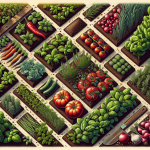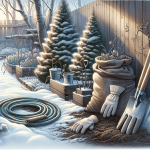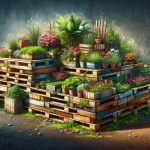This post may contain affiliate links. As an Amazon Associate, we may earn commissions from qualifying purchases.
Welcome! The journey of building and maintaining your very own solar greenhouse is both exciting and rewarding. In this article, you’ll discover practical advice on selecting the ideal location, gathering necessary materials, and ensuring optimal sunlight for your plants. Additionally, you’ll learn dependable maintenance tips that keep your greenhouse thriving year-round. Whether you’re a budding gardener or an experienced grower, this guide will empower you to create the perfect sustainable environment for your plants. Have you ever looked at your backyard and thought, “Wouldn’t it be great to grow my own fresh vegetables year-round?” If so, you’re not alone. Many gardening enthusiasts dream of having a solar greenhouse to extend their growing season and become more self-sufficient. But where do you start? How do you build and maintain a solar greenhouse?
Understanding the Basics of a Solar Greenhouse
What is a Solar Greenhouse?
First things first: what exactly is a solar greenhouse? Unlike traditional greenhouses, a solar greenhouse is designed to maximize the sun’s energy to heat the interior. This means that even in colder months, your plants can thrive with minimal additional heating.
Why Choose a Solar Greenhouse?
There are several benefits to choosing a solar greenhouse over a conventional one. You’ll save on energy costs, reduce your carbon footprint, and have a more sustainable way to grow your plants. Plus, the ability to garden year-round can be incredibly satisfying.
Planning Your Solar Greenhouse
Location, Location, Location
The success of your solar greenhouse heavily depends on its location. You’ll want to place it where it can get the maximum amount of sunlight, ideally facing south in the Northern Hemisphere, and north in the Southern Hemisphere.
Size and Shape
Consider what you’ll be growing and how much space you’ll need. A larger greenhouse will obviously allow for more plants, but keep in mind that it will also require more materials and effort to build and maintain.
Zoning Laws and Permits
Before you break ground, make sure to check your local zoning laws and permit requirements. The last thing you want is to build a beautiful greenhouse only to find out you need to take it down or modify it.
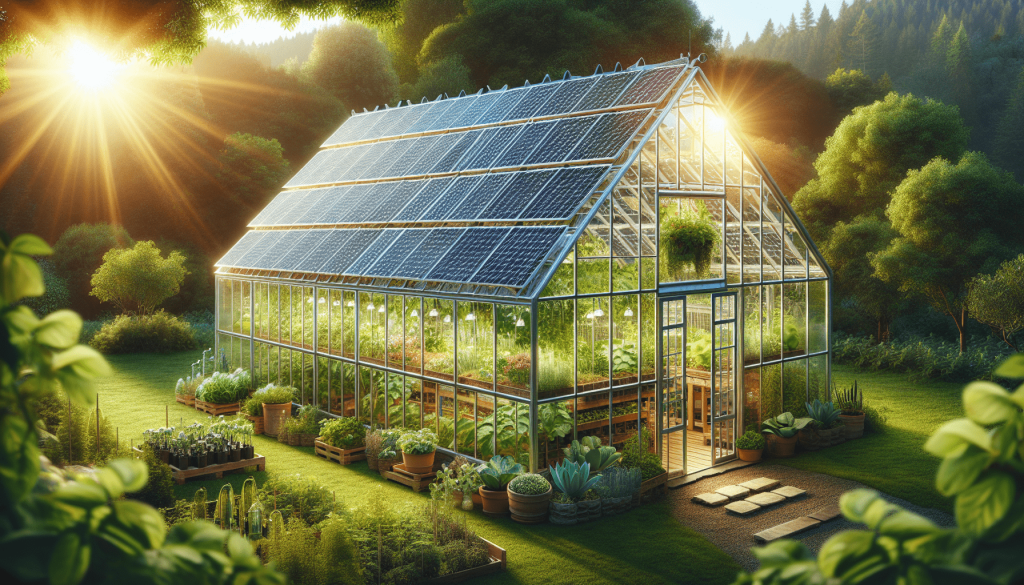
Building Your Solar Greenhouse
Materials You’ll Need
To get started, you’ll need a variety of materials. Here’s a handy table to help you keep track:
| Material | Quantity | Purpose |
|---|---|---|
| Greenhouse Frame | As per size | Basic structure |
| Transparent Sheets | As per size | Walls and roof |
| Insulation | As needed | Temperature control |
| Ventilation System | 1-2 units | Air circulation |
| Solar Panels | Optional | Additional energy source |
Step-by-Step Construction
Step 1: Lay the Foundation
The foundation is crucial for stability. You can use concrete, gravel, or even treated wood depending on your budget and preference. Make sure it’s level and sturdy.
Step 2: Build the Frame
Next, construct the frame. This can be made from wood, metal, or PVC, depending on your budget and how permanent you want the structure to be. Wooden frames are cost-effective but may require more maintenance.
Step 3: Add the Covering
Transparent sheets are typically used for the covering. Materials like polycarbonate or double-pane glass are excellent choices for allowing sunlight to penetrate while keeping the interior warm.
Step 4: Install Insulation
Adding insulation to the north wall can help retain heat. Materials like bubble wrap or foam board are affordable and effective options.
Step 5: Ventilation and Heating
Proper ventilation is crucial. You can add manual vents, automatic vent openers, or even install a simple fan system. For additional heating, consider installing a few solar panels or a passive solar heating system.
Maintaining Your Solar Greenhouse
Daily Maintenance
Maintaining a solar greenhouse isn’t overly complicated, but it does require some regular attention. Here are some daily tasks to keep in mind:
Watering
Make sure your plants get enough water. Automated drip systems can make this task easier and more efficient.
Temperature Monitoring
Keep an eye on the temperature. Ensure it doesn’t get too hot or too cold, as extreme temperatures can harm your plants.
Seasonal Maintenance
Certain tasks should be performed seasonally to ensure the longevity and efficiency of your greenhouse.
Winter Preparation
Inspect and Repair
Check for any damages in the structure and make necessary repairs to ensure that it can withstand winter weather.
Insulate
Add extra insulation to make sure your greenhouse stays warm. This could include thermal blankets or additional bubble wrap.
Summer Preparation
Shade
Consider adding shade cloths to prevent overheating during the hot summer months.
Ventilation
Make sure your ventilation system is in top shape to circulate air and maintain a cooler environment.
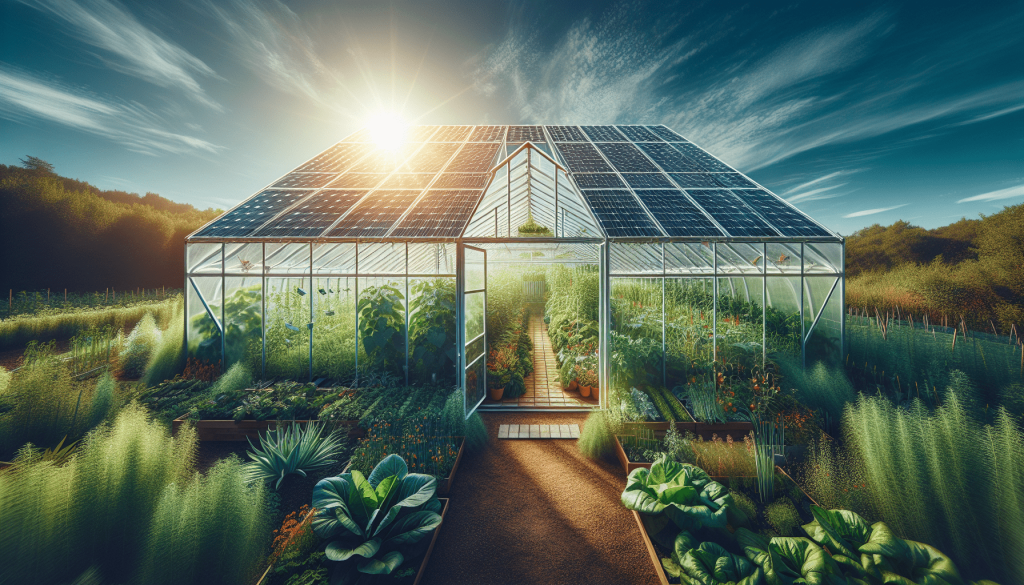
Growing in a Solar Greenhouse
Choosing the Right Plants
Not all plants thrive in a greenhouse, so it’s essential to choose your plants wisely. Here are a few types of plants that generally do well:
| Type of Plant | Best Season | Notes |
|---|---|---|
| Leafy Greens | All year | Lettuce, spinach, kale |
| Root Vegetables | Cool seasons | Carrots, beets, radishes |
| Herbs | All year | Basil, parsley, thyme |
| Fruits | Warm seasons | Tomatoes, strawberries, peppers |
Soil and Fertilization
Proper soil and fertilization are crucial for plant health. Choose a high-quality potting mix and fertilize according to the needs of the plants you are growing.
Pest Control
Pests can be a problem even in a greenhouse. Use organic pest control methods to keep your plants safe. Neem oil, ladybugs, and companion planting are all effective strategies.
Advanced Tips and Tricks
Automation
Consider adding some automation to make maintenance easier. Automated watering systems, temperature controls, and vent openers can all save you time and ensure your plants are well cared for.
Sustainable Practices
Make your greenhouse even more eco-friendly by incorporating rainwater collection systems and compost bins. These practices can help reduce your environmental footprint and enhance your gardening experience.
Experiment and Learn
Don’t be afraid to experiment with different plants, techniques, and layouts. The more you learn, the better you’ll become at maintaining a thriving solar greenhouse.
Common Challenges and Solutions
Managing Humidity
Maintaining the right humidity levels can be tricky. Too much humidity can lead to mold and mildew, while too little can cause plants to dry out. A hygrometer can help you monitor levels, and a dehumidifier can assist in controlling excess moisture.
Balancing Light
During different times of the year, the light levels in your greenhouse will change. In winter, you might need to add supplemental lighting, while in summer, you may need to provide additional shading.
Dealing with Extreme Temperatures
Hot and cold spells can wreak havoc on your plants. To manage this, use thermal mass like bricks or water barrels to store heat during the day and release it at night.
Final Thoughts
Building and maintaining a solar greenhouse can be an incredibly rewarding project. Not only will it allow you to grow your own fresh produce year-round, but it also contributes to a more sustainable lifestyle. With careful planning, regular maintenance, and a bit of experimentation, you’ll be well on your way to enjoying the fruits (and vegetables) of your labor.
So, are you ready to embark on your solar greenhouse journey? Happy gardening!



